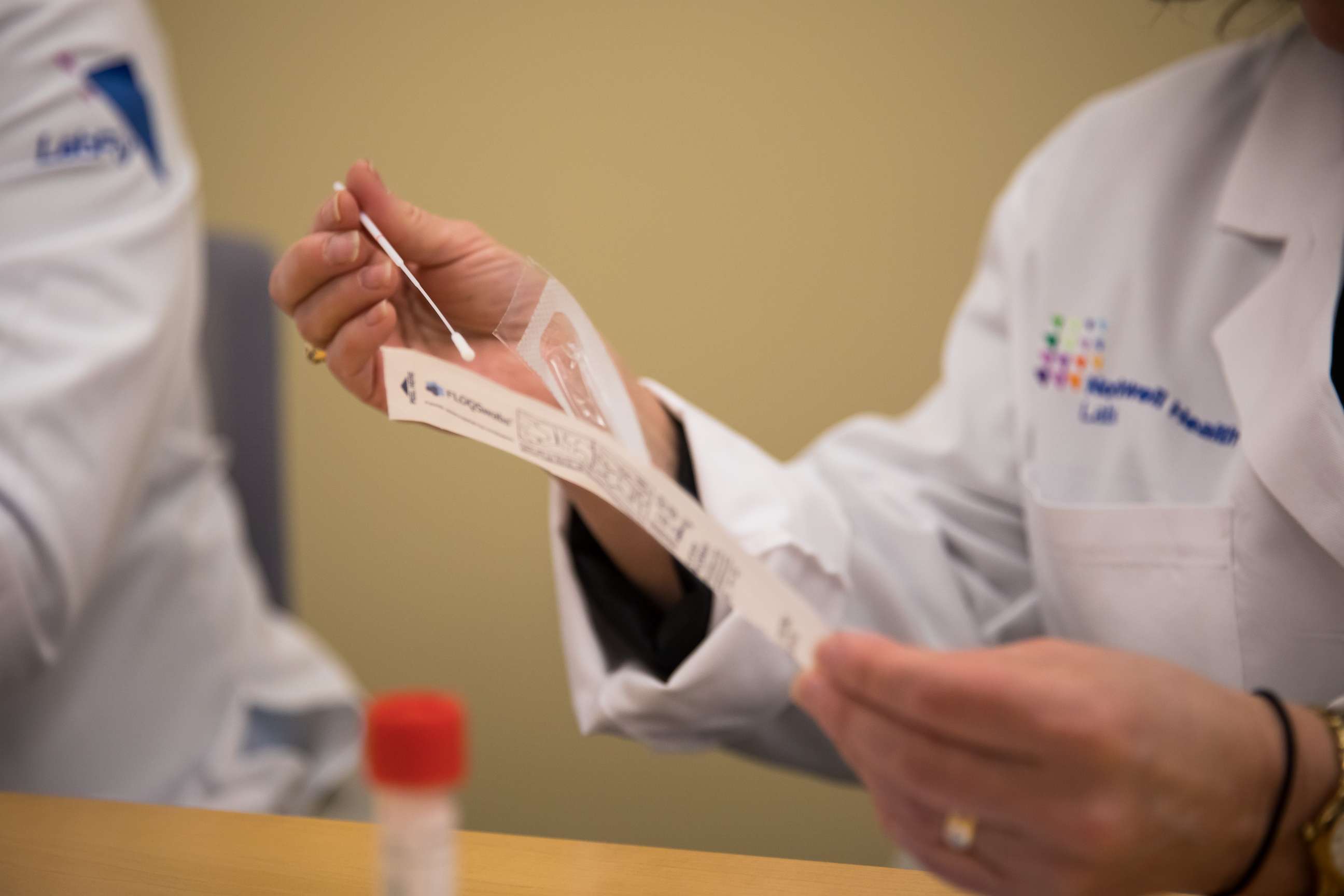Lab workers are unseen warriors fighting the coronavirus
Laboratory medicine professionals interpret test results.
Across the world, everyday people are applauding the brave healthcare workers on the frontlines of the COVID-19 pandemic. And with laboratory appreciation week coming up April 19-25, now is a great time to acknowledge some unseen warriors fighting the coronavirus -- lab professionals.
"We really need to hail the pathologists, medical technologists, and other laboratory professionals who are becoming unsung heroes of the COVID pandemic," noted Dr. Kathleen Beavis, spokesperson for the College of American Pathologists and Laboratory Director at University of Chicago.
Pathologists are specially trained doctors who advise clinicians which tests to order and how to interpret results. Pathologists and laboratory staff work in medical laboratories that test for the novel coronavirus, ensuring that all of the tests are functioning and that patients receive the correct diagnosis and treatment.
As one pathologist’s assistant in New York City said, "I chose to work in the lab because I want to support the nurses, doctors, nurse aids, respiratory therapists and radiology techs that do all the patient-facing jobs. I know that they couldn't do their job if I didn't do mine."
A strong laboratory infrastructure is crucial in fighting COVID-19.
"The majority of medical decisions involve laboratory information," Dr. Timothy Craig Allen, board member of the College of American Pathologists and Pathology Department chair at the University of Mississippi Medical Center, said.
"Infrastructure is needed so that patient specimens can be rapidly accessioned and prepared for testing, and infrastructure is needed in information technology so that results can be quickly disseminated," Beavis said.
Laboratories around the country are ramping up to address the pandemic. Allen notes that at the University of Mississippi Medical Center, "the clinical laboratory and the molecular laboratory, along with their pathologist leaders, have been engaged in a mini 'Manhattan Project' over the past two weeks to bring coronavirus testing in-house."
By adding two additional testing platforms, the medical center will be able to increase coronavirus test volume from 180 tests per day to approximately 750 tests per day, according to Dr. Allen.
And in Chicago, Beavis said that lab professionals are working diligently behind the scenes to combat the COVID-19 pandemic on all fronts. Professionals in the microbiology lab are working hard to process traditional molecular tests to screen for COVID-19 infections.
What to know about coronavirus:
- How it started and how to protect yourself: Coronavirus explained
- What to do if you have symptoms: Coronavirus symptoms
- Tracking the spread in the US and Worldwide: Coronavirus map
Meanwhile, those working in the field of immunology are racing to ramp up serology, or antibody, testing which uses blood samples to help identify who has been infected in the past. And lab professionals working in transfusion medicine are working on plasma donations from people who have already recovered from a confirmed infection.
Laboratory professionals have had to make numerous changes to adapt to coronavirus demands.
Lab professionals "are working extended hours and several days nonstop to diagnose the presence of the SARS coronavirus-19 in our patients," Beavis said.

In addition, Beavis said that lab techs who normally work in specific areas of the lab are volunteering to help in other lab areas where the demand is greatest.
In Mississippi, Allen noted, “We have also adjusted staffing so that we have the ability to better withstand staff or staff family illness that will keep them out of the laboratory.”
In New York City, one pathologists’ assistant told ABC News that laboratory personnel are rearranging schedules as best they can to practice social distancing.
The assistant who asked to remain anonymous, said that now more than ever is the chance for everyday Americans to appreciate unseen medical heroes, including medical laboratory scientists, medical laboratory technicians, accessioners, phlebotomists, lab managers, pathologists, pathologists' assistants, lab aides and histology technologists.
"We see you, we are you and we thank you," she said.
Angela N. Baldwin, M.D., M.P.H., is a pathology resident at Montefiore Health System in the Bronx and a contributor to the ABC News Medical Unit.




